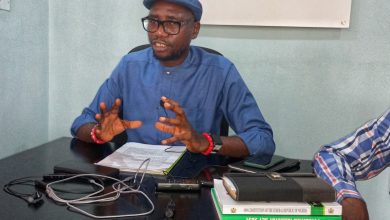Community-Based Initiatives, Solution to COVID-19 Response

By Martha Igbiks
The coronavirus, also known as COVID-19, took the entire human race by storm following its emergence in Wuhan, China, last December. Since then, it has ravaged countries: developed, developing and under-developed. Thousand of lives have been lost, schools, churches, businesses, and even living styles of people in the world have been devastated by the effect of the virus.
Various nations and States have swung into action by putting measures in place to stop the spread of the virus. One key of such measures has been sensitization of the populace on the dangers inherent in the disease.
In Rivers State, the same measures were replicated. One of such measures was the birth of the Rivers State Risk Communication and Community Engagement (RCCE) which focuses on engaging various stakeholders: traditional rulers, Civil Society Organizations (CSOs, youth and women bodies, etc., through community engagements with a view to create awareness, proffer possible prevention methods and ensure businesses do not suffer setbacks amidst the pandemic.
Interestingly, the RCCE has reached over two million people across the State with key messages on COVID-19, through its community engagement approach, according to the Chief of Field, Rivers Field Office, UNICEF, Mr Guy Yogo.
Today we have more than 240 communities that are models, taking the lead as good ambassadors of example of community engagement initiators, setting measures on their own to protect members of their communities from contacting the virus”, he said.
Read also: Governor Wike Appeals To Rivers People To Support The Fight To Defeat Coronavirus
Some of the model communities have drawn cost for their Community Action Plans (CAP), constituted committees to implement the plans, identified community artisans that are already producing face masks, hand sanitizers, liquid soaps, etc., to leverage on. Others have even gone further to institute bye-laws aimed at enforcing COVID-19 safety measures with their youth mandated to ensure compliance.
Notable amongst these model communities is the Alesa community in Eleme Local Government Area in the State. The Paramount Ruler, HRH, King Emperor J. D. Nkpe (JP), single-handedly produced rebranded IEC materials with COVID-19 messages and distributed to his subjects.
He also donated hand-washing facilities to the community. Doing everything humanly possible to prevent the virus from getting into his community through partnerships with CSOs in carrying out sensitization.
In a chat with him, he stated that he has distributed nose masks to his people and have commissioned a task force to ensure compulsory use of the nose masks.
“Before anyone enters my palace, it’s a must to wear nose mask and wash hands”, he said.
It is such interventionist effort by the Paramount Ruler that the RCCE describes as “taking ownership of the process”.
The Asarama youth Association, an indigenous youth body, is another typical example of youth that are not only tomorrow’s leaders, but have carried out intervention programmes with their little resources to stop the pandemic from spreading in their domain.
They created awareness in all the nooks and crannies of their communities on the need for regular hand washing. When contacted, they said ”its our way of giving back to our people”.
The case is not different in Aboluma Community in Port-Harcourt City Local Government; Obuama, in Asari-Toru; Rumuoro-Ogbakiri, in Emouha; Ezisimnlo, in Degema; and Ogoloma, in Okrika. All of these communities have done tremendously in building preparedness, adoption and resilience to fight the dreaded coronavirus.
Considering the number of deaths relating to COVID-19 recorded so far, there’s little doubt that it could have been less if necessary precautionary measures were strictly adhered to. It’s therefore time for everyone to take responsibility, for nomalcy to return to the system.
One key way to achieve this is for everyone to view the safety measures put in place by the Nigeria Centre for Disease Control (NCDC) as the new way of life to be safe.




